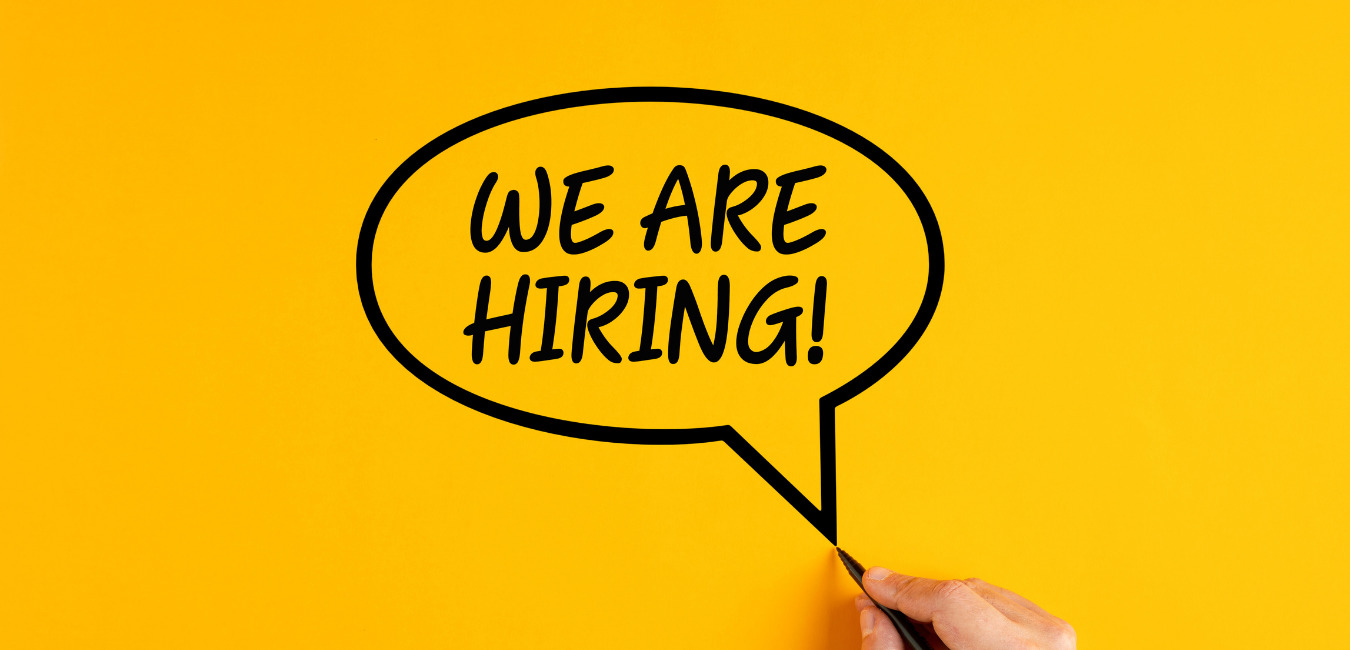Last year the film Boiling Point was released starring Stephen Graham and, using one continuous shot, it captured one busy day in a restaurant. It goes from bad to worse; a missed allergy, a food critic turning up unannounced and an explosive argument between the Sous Chef and Restaurant Manager. Stephen’s character Andy Jones is the Chef Patron and is suffering mentally. He is visibly struggling to balance his personal life and the pressures of running the restaurant. Watching Andy trying to spin all his plates creates incredible tension until, in the end, it culminates in one awful crescendo.
Did I find it relatable? Some parts, sure. However, I mostly found it off-the-mark. No one day is like that in any hospitality business. Also, whilst you may get the odd tyrant chef behind the pass, an all-out explosion like something off Hell’s Kitchen is actually very rare. In my opinion it didn’t accurately depict why some people in the sector are unhappy or suffering from poor mental health.
In the last few years, we’ve seen exposés on various high profiles chefs. The Instagram account @HospitalityBullshit revealed report after report that showed the worst examples of bullying, assault and even sexual abuse. It was shocking, to say the least. Many were wondering who would be the next big name to be exposed. However, whilst these situations horrifyingly do still happen, in truth, they are the exception.
Earlier this year I invited Matthew Cameron, the founder of Hospro to be the keynote speaker at our networking event. He helps hospitality employers create happier workplaces which of course results in a happier, healthier team meaning better guest experiences and improved staff retention.
“Many people talk about unhappiness/ill mental health within hospitality and the conversation always jumps immediately to these big events that unfortunately do happen, but are far less common than the times when ‘nothing happens’ – where no plates are thrown or words yelled.”
Matthew Cameron – hospro
We discussed these high-profile events and he told me “Many people talk about unhappiness/ill mental health within hospitality and the conversation always jumps immediately to these big events that unfortunately do happen, but are far less common than the times when ‘nothing happens’ – where no plates are thrown or words yelled.”.
This immediately struck a chord with me. From my own time in the sector, I can recall times of real unhappiness and even times when I and others weren’t treated with much respect by managers. But these were not explosive situations, there wasn’t anything that was going on that was going to make headlines. Certainly not anything that Hospitality Bullshit would report. Nobody grabbed my throat and threatened me. My experiences did, however, make me desperately unhappy at times and in the end they made me leave my job. Bad management was the reason I left all of my jobs in hospitality, in fact. Never because I didn’t love what I did. It was many smaller experiences on a constant drip. That’s significant, those experiences matter. They add up.
Ever been in a situation where you tried to explain why you felt so underappreciated in your job? When you start rattling off a list of small incidents it can sound pretty petty and each individual situation could be brushed off as a misunderstanding or a moment. However, it’s the repetitiveness of it that adds up and erodes your happiness and well-being and could impact your mental health. However, all of this can be avoided.
Matthew explains “It’s the small things that are impacting happiness, retention rates and therefore profit every single day – but these are also the things that can also be improved through a positive culture at work.” So, whilst there’s hope, at the moment there are still some leaders out there who think that because there aren’t extreme situations happening in their workplace, there isn’t a problem. If you think like this then I am afraid the cycle will continue.
At the beginning of his talk, Matthew introduces himself. This is in no way an ordinary introduction. He starts off by telling us how he began his career in a fish and chip shop, then moved into mixology then soon embarked on a successful career as a bar manager. His introduction then took a sharp turn as he went on to detail the demise of his mental health, and how in the end he very nearly took his own life. It was only by thinking about how this might impact others that, he thankfully didn’t go through with it. To paint an accurate picture he projected an image to the audience of the actual bridge he had planned to jump from to end his life.
Matthew went on to the positive of how he started to unpick what had happened, and why. He realised that what was making him so unhappy, what had led him to this point, was work.
He illustrated to me an example of how a constant drip of smaller situations can lead to a tsunami. “It’s the scenarios where one small event leads to another and then eventually a bad day or a bad week. Then maybe you go for a drink after work to ‘unwind’, then you wake up a little worse for wear dreading going to work that morning. Then maybe a customer or your boss says something to you that you take the wrong way, it gets extremely busy and as a result, you then spend the next few hours in your head very unhappy or stressed – situations like these happen every single day and often snowball over time into something more serious if the cycle is not interrupted.”
What strikes me is that post-pandemic the focus on how to improve the hospitality sector has often focused on upping salaries or reducing working hours. Whilst good wages and hours are a great start, when we speak to people, now more than ever, they are interested in the whole package. Job seekers, rightly, want to work for good employers who are putting the happiness and well-being of their employees centre stage of the business.
What examples are there of the kind of things candidates want to see from employers?
- Better pay
- Career development
- Training
- Positive company culture
- Diversity, Equity and Inclusivity
- Good working conditions
- Employee Assistance Programmes
- Healthy and delicious staff meals
- On-site mental health first aiders
- Flexible working to accommodate life outside of work
- Better work-life balance
- Kind practices and help with personal life such as; private medical care, HRT, childcare costs, supplementary maternity and paternity leave, cycle-to-work schemes
- Additional annual leave
- Employee appreciation programmes
Matthew highlighted a key point and that is when thinking about the benefits you can offer your people, consider what are the Life Benefits and what are Work Benefits?
This distinction is important. Whilst good pay, a four-day working week or an additional holiday allowance is attractive, these are Life Benefits that are external and won’t be what makes employees happy and at the end of the day will be what make people stick around.
People stay in their jobs because of the Work Benefits. These are the things that go on inside the business every day. There needs to be a clear line of progression, training, development and an appreciation for the people who work in your business. Studies have shown that progression is in fact one of the key areas that drives happiness.
I ask Matthew where hospitality leaders can start. LISTENING. He suggests kicking things off by having conversations with your people and using the information you gain to make improvements in the workplace. “I know this sounds simple, but the first step is simply talking to your team and understanding them not as employees but as people. It’s finding out what makes them tick, what motivates them, what are their values, what their goals are, what jobs they like doing, and what jobs they don’t.” By doing this, he explains, you will get to know who your people are, rather than simply their function or what they can do for you.
He sums up with his Three Steps to Happiness:
- Identify (find out what excites them)
- Empower (give them the ability to do it)
- Encourage them to repeat the positive behaviour through feedback.
Matthew references a study which showed the biggest determining factor of a good day at work is ‘making progress’. He goes on “How do people know they’re doing a good job/making progress? You tell them! What happens then? They repeat the positive behaviours.”.
He makes a point of being realistic about time scales, stressing that to make a change it has to be consistent and often in order to see results. Matthew uses a gym analogy “You go for 6 months and see no change then all of a sudden you start to notice improvements”.
Not only is Matthew’s candidness completely refreshing, but I really feel he’s onto something. I felt like he articulated perfectly what I and other people experienced when we were in the hospitality sector. By focussing on the explosive headline events we’re missing the mark and not dealing with the real issues.
The key takeaways:
- Everyone should reflect on their business
- Candidates are looking at the whole job, not just the salary
- It’s the small everyday things that are negatively impacting retention rates and profits
- Job seekers want to work for good employers who are prioritising happiness and well-being
- Life Benefits are external and include things like an enhanced holiday allowance
- Work Benefits are internal and include things like a clear line of career progression, healthy staff food and simply being listened to
- Both benefits go hand in hand but Work Benefits are what drives happiness – focus on these
- Three steps to happiness – Identify. Empower. Encourage
- Whatever you do make sure it’s consistent
If you think you could do with Matthew’s help in creating a happier working environment head to: https://www.hospro.co.uk/
While you are here, why not sign up to join me, the Tonic Talent team and many other hospitality businesses on the Walk for Wellbeing this October. Participants will walk 20km to raise awareness for mental health and vital funds for the amazing industry charity Hospitality Action. Planned walks will take place in London, Birmingham, Manchester and Glasgow on Sunday 16th October.
For more info go to: http://walkforwellbeing.org/
Caitlin x



